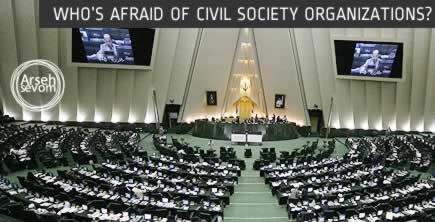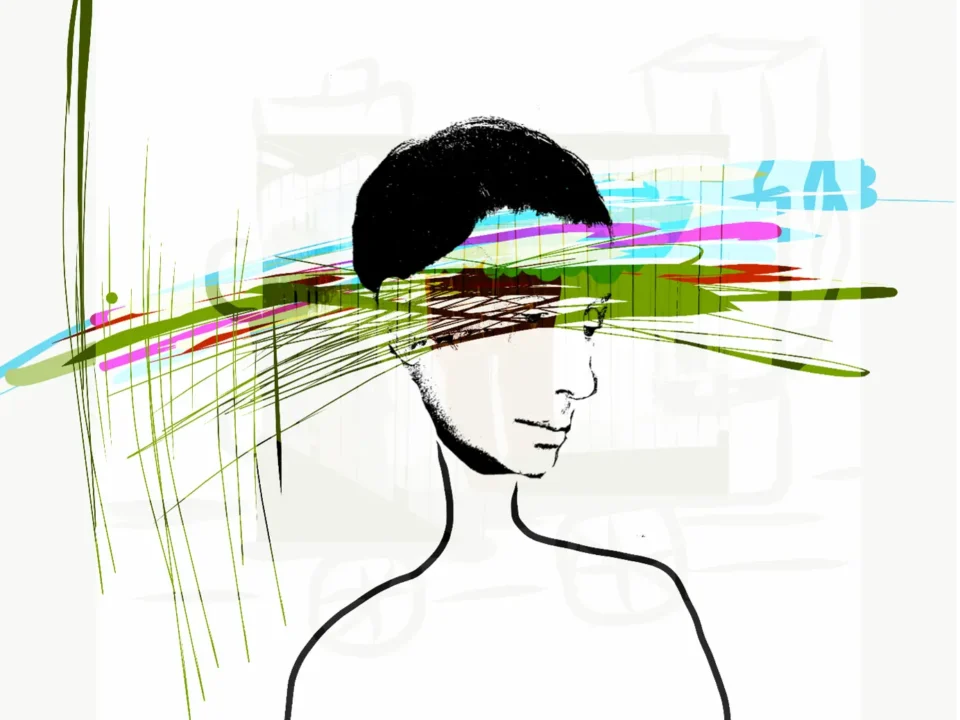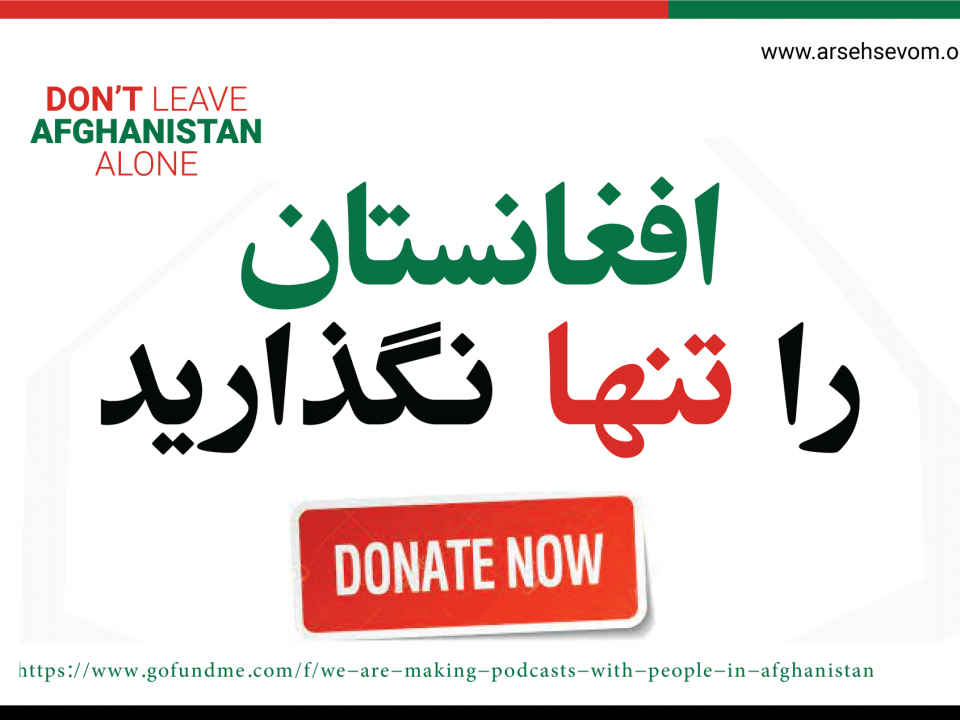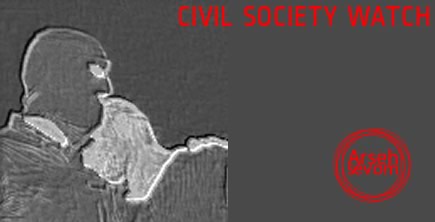
Iran: Prison Furloughs and Public Executions
January 24, 2013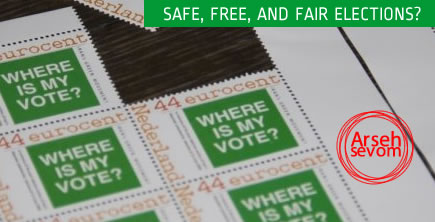
Iran: Say What? Was that Free Elections?
January 29, 2013The Main Shortcomings of the Non-Governmental Organizations Bill
Arseh Sevom – In 2010, Arseh Sevom published a report on the Non-Governmental Organizations Bill, Legalizing the Murder of Civil Society (pdf), which has been in and out of committee for more than five years (click here for more information). Several years after it was originally presented to the parliament in 2007, the Non-Governmental Organizations Bill, including five chapters and 46 articles, is still in suspension. Last year the bill was postponed once again.
The bill went back to committee where it went through a number of changes, further eroding the rights of NGOs
Among the changes made to the bill, is an increase in the role of police and military forces on the body controlling the activities of NGOs. The article states:
“The supreme body of NGOs includes representatives from designated deputies of the Ministry of Interior (head of the body), Ministry of Foreign Affairs and Ministry of Intelligence, plenipotentiary representatives from the judiciary, police, IRI Broadcasting, Endowments and Charity Affairs Organization, Islamic Development Organization, Basij, Revolutionary Guards, Imam Khomeini Relief Committee and Centre of Mosque Affairs, selected representatives of national and expert organizations, representatives of supreme provincial councils and a representative from the social commission of the parliament. The body will observe activities of the NGOs”.
On his blog, social activist Hamid-Reza Vasheghani Farahani, discusses the changes to the bill and makes a number of recommendations to civil society actors to gain more support among lawmakers and the public. Arseh Sevom has translated it and published it below.
Hamid-Reza Vasheghani Farahani
Analyzing non-governmental organizations bill and some suggestions for these organizations
The Non-Governmental Organizations Bill has been discussed in parliament since 2007. Two previous drafts were not accepted due to a variety reasons. The first draft was presented to the parliament in 2007 by a group introducing themselves as representatives of a number of NGOs. The second draft was presented in December 2008, but its terms and conditions were not approved. The third draft was provided in 2010 by social commission of the parliament where discussion and approval of its terms and conditions created heated reactions in the country. The first and the second drafts were similar in that the number of articles strictly limiting NGOs or allowing officials to interpret the law is less than in the third draft. On the other hand, the most recent draft is structurally similar to the second one, while wisely changes some articles to make it more open to interpretation or sometimes even reverse (you can find the drafts in Parliament Research Center [fa], plans and bills section, “Non-Governmental Organizations Bill”).
The most important aspects of Non-Governmental Organizations Bill
- Why the law is necessary. Reasons were provided in the introduction of the 2008 draft to show the necessity of having such a law. The reasons include: ambiguity in relations between NGOs and international organizations, lack of transparency, and accountability of NGOs to authorities, and the engagement of NGOs in political activities.
- Criticism is against the law. In the definition of NGOs and their responsibilities, the term “humanitarian” and its related amendment (equality of all groups and religions) are now deleted. The definition of “non-political activities” has been extended in such a way that it includes prohibition of campaigning for or against politicians or political forces. Therefore, as Executive, Judicial, and Legislature branches of the government are the primary political forces of the country; any disagreement or criticism from NGOs can face legal prosecution.
- No work is legal without an operation permit. According to the first and second drafts, filing registration documents (from the Registration Organization) was sufficient for an NGO to begin its activities. An organization was allowed to operate without a permit, but with no privileges and authority compared to an NGO with a work permit. In the third draft, “registration document” is replaced with “operation permit.” Therefore, without obtaining such a permit from the supreme body, an organization is prohibited from arranging even a simple meeting or a general assembly.
- Nomenclature is changed. On the other hand, terms like “poverty,” “welfare,” “humanitarian,” “life skills”, and “research and development,” etc. are deleted from the second draft, or replaced with other terms. For example, “women” is replaced with “women and families;” “social development” is replaced with “social affairs;” and “exercise, health care, and treatment” is replaced with “health care.”
- Representation by NGOs is further limited. According to the bill, supreme bodies of townships and provinces are responsible for dealing with issues of NGOs. In the first and second drafts, (national) supreme courts were composed of three representatives from NGOs and plenipotentiary representatives from the Ministry of Interior, provincial supreme councils, police, the Ministry of Finance, and expert organizations. However, the third draft not only reduces NGO representatives to one, but also includes representatives from Judicial, Police, Ministry of Foreign Affairs, Ministry of Intelligence, IRI Broadcasting, Endowments and Charity Affairs Organization, Islamic Development Organization, Basij, Imam Khomeini Relief Committee and Centre of Mosque Affairs.
- The only member with democratic accountability has no right to vote. Township and provincial bodies are structurally nearly the same as the supreme body. It should be mentioned that according to the first and second drafts, a member of a city council was the only governmental member of township and provincial bodies elected with the votes of people. In the third draft, this member is an observer of the meetings while deprived of right to vote.
- NGOs lose all independence, while checks and balances are removed. The list of responsibilities and rights are also surprising. In the article about the supreme body, the terms “policy-making” and “observing activities of NGOs” are used. It is also stated that upon approval NGOs may become the property of government. In this case, NGOs should obey the decisions of the supreme body and will not be independent any more. On the other hand, the supreme body is entitled to dissolve NGOs and it seems that the continuous challenge of formal and informal intelligence services on this issue will no longer exist. The Judiciary has sometimes been under pressure from intelligence services to close or suspend an organization, but, right or wrong, it has often acted based on its own guidelines rather than being affected by extrajudicial powers. Now, if NGOs do not operate in accordance with guidelines of the supreme body, the body can dissolve them quite easily. There was not any article about head of the body in previous drafts. According to the most recent draft, the body is now presided over by the representative of Ministry of Interior (vice-minister or vice-governor).
- The government no longer has an obligation to NGOs. In the rights and liabilities sections of the bill, there is no sign of participation of NGOs at the macro level, in monitoring and civil activities. Furthermore, the “obligation” of the government in cooperation with NGOs, providing them with unclassified documents, making sure of their participation on policies, and benefiting from their suggestions, has changed to its “entitlement.”
- Civil Society in Iran can only interact with international organizations by permission. Any membership in or cooperation with international organizations should take place after approval of the supreme body. NGOs should obtain permits for making any connection with international organizations or civil organizations from other countries.
There are many more examples. At this point it seems that NGOs should take immediate action in order to challenge the erosion of their rights since 2007. Many representatives of the parliament are basically unfamiliar with the concept of non-governmental organizations. Some of them take a security point of view toward the organizations, others think of them as social contractors, and some representatives consider these organizations as agents of the West. However, these obstacles should not make NGOs inactive. NGOs operate in a variety of fields including women, children, and so on and, unfortunately, this has decreased their integrity.
The role and position of civil and volunteer activities can be considered as a basic subject in any organization, and a good reason to achieve integrity.
Recommendations
According to the above, a number of recommendations can be provided for reducing the negative effects of the possible approval of the bill, affecting the approval process and correcting misguided viewpoints toward the organizations:
- Establishing special groups for discussing the bill, analyzing the outcomes, and providing sensitivity among society and organizations
- Increasing education about structure of NGOs and their role and functionality in society in order to provide a realistic and non-governmental model of civil foundations
- Publishing a list of activities, scientific and educational resources, in order to attract the attention of the public to the objectives of NGOs
- Improving networks and arranging meetings among NGOs in order to discuss common goals, emphasize them, and plan to achieve them
- Avoiding radical or irrational actions that could bring severe damage to the NGOs
- Compiling an alternate bill and presenting it to the public, media, authorities, main figures, and the parliament, together with an analysis of the negative effects of the current draft, and legal-social criticism of its articles and clauses
- Performing public and social activities in the form of cooperation between people and social activists, in order to prevent social indifference and enhance cooperation.


